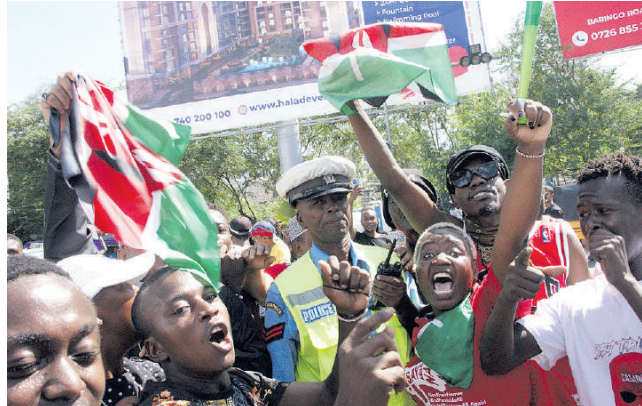

The concept of the political elite refers to a small group of individuals or actors who hold significant power and influence within the political landscape of a society.
These elite shape public policy and control resources, often prioritising their interests over those of citizens. The political elite’s influence can lead to disconnect between them and the general populace, fostering feelings of alienation among citizens.
The current political realignments signal a significant shift in the political dynamics. These developments have implications for the country’s democratic trajectory, especially as they occur against the backdrop of growing youth-led activism and societal demands for reform.
This closing of ranks represents a consolidation of power that risks undermining democratic principles. While these moves may ensure short-term political stability, they risk deepening public alienation and perpetuating an elitist governance system disconnected from the bottom-of-the-pyramid realities.
Such collaborations tend to stifle opposition and accountability, as power becomes concentrated within a few individuals or factions.
This poses a risk to multiparty democracy, potentially reverting to a pseudo-authoritarian setup where political dissent is frowned at and public participation is marginalised.
The current administration has aggressively pursued centralising power, seeking alliances that ensure minimal resistance to executive policies.
This includes outreach to figures historically in opposition, such as Raila Odinga. Raila’s role as a seasoned opposition leader has shifted toward negotiating with the government rather than fostering grassroots mobilisation, raising concerns about the dilution of checks and balances.
Uhuru Kenyatta’s position remains pivotal in mediating among competing elites, refl ecting a preference for elite consensus over transformative change for ordinary citizens.
Kenya’s youth, particularly Gen Z and millennials, are emerging as a formidable force in challenging the status quo. This demographic is informed, tech-savvy and disillusioned by the cyclical nature of elite politics.
Their activism is characterised by digital mobilisation, through platforms like X, TikTok and Facebook, which have become tools for political discourse, exposing corruption and rallying public dissent.
As masters of grassroots innovation, young people are engaging in alternative political spaces, championing causes such as climate change, social justice and economic equity.
As such, the Gen Z movement threatens the elitist structure by advocating for inclusive governance and accountability. This revolutionary predisposition reflects a demand for political systems that prioritise competence and ethical leadership over entrenched interests.
Development through media adds synergy to countering this elitist regrouping and push for value-led governance as enshrined in the 2010 Constitution by strengthening civic engagement, where ordinary Kenyans are educated to actively participate in public forums, community dialogues and initiatives that hold leaders accountable.
Its programming and strategies embrace decentralised leadership by advocating for the devolution of resources and decision-making to empower counties and communities - especially the rural and urban marginalised.
DTM demands electoral integrity by partnering with other independent media and civil society organisations to mobilise and ensure free, fair and transparent polls in 2027, by closely monitoring the electoral process and advocating for reforms in the Independent Electoral and Boundaries Commission.
Through its poster project “Empowering Rural Communities through Media”, DTM promotes youth leadership by training and mentoring young, competent journalists to leverage digital tools and technology to develop engaging content that highlight stories of good governance and inspire public participation in policy discussions.
Kenya’s 2027 general elections will likely be influenced by several key factors.
First, are increased elite alliances as is becoming apparent. We will witness further consolidation of political power among elites, with strategic partnerships aimed at securing dominance. Second, youth-led political movements.
The Gen Z revolution may produce new leaders and movements that challenge traditional political narratives. Third, technology-directed elections.
Digital platforms are going to play a pivotal role in mobilising voters and scrutinising the electoral process. Lastly, populist rhetoric.
The outlandish promises of 2022 will be child’s play compared to what will be unleashed in 2027. Political campaigns will likely focus on economic challenges such as unemployment and inflation, with promises of reform that are out of this world.
While the regrouping of elites poses challenges to inclusive governance, the resilience of ordinary citizens, particularly the youth, off ers hope.
By reclaiming their role in governance and demanding accountability, Kenyans can foster a political culture that aligns with the aspirations of the 2010 Constitution.
For the 2027
elections, preparation involves
vigilance, engagement and a
commitment to transformative
leadership that prioritises the needs
of all citizens over the interests of a
privileged few.


